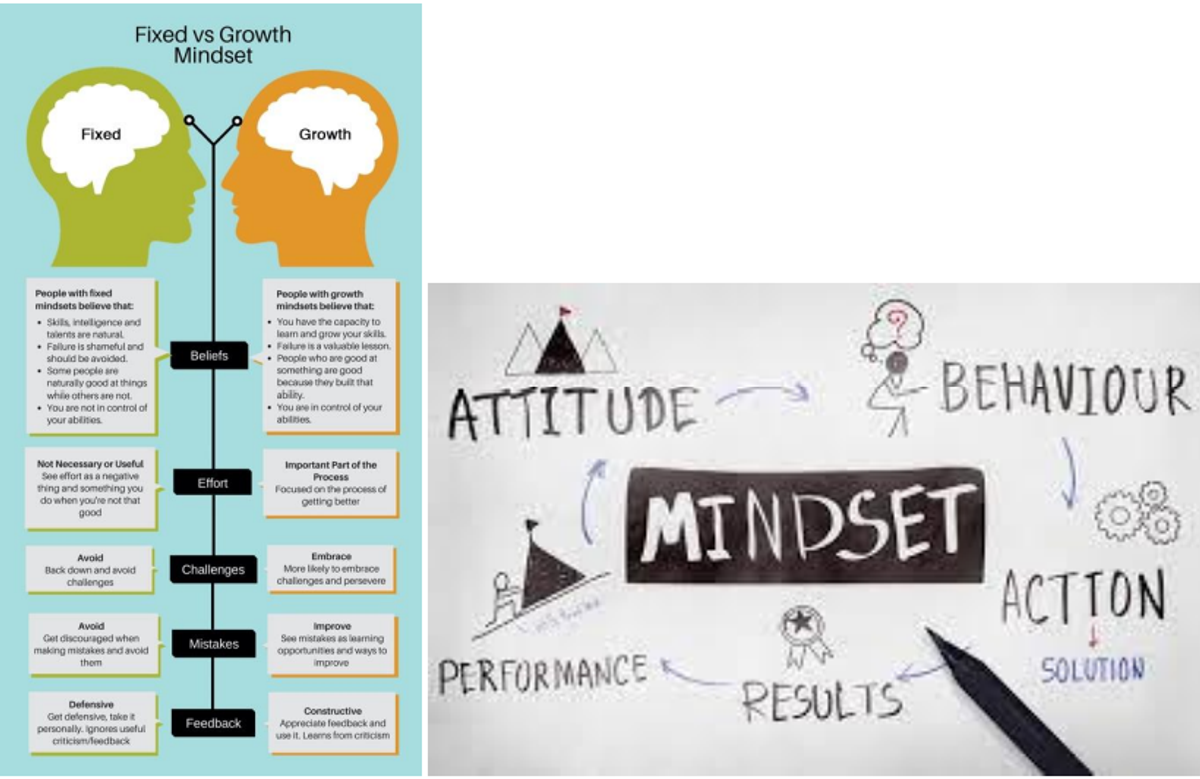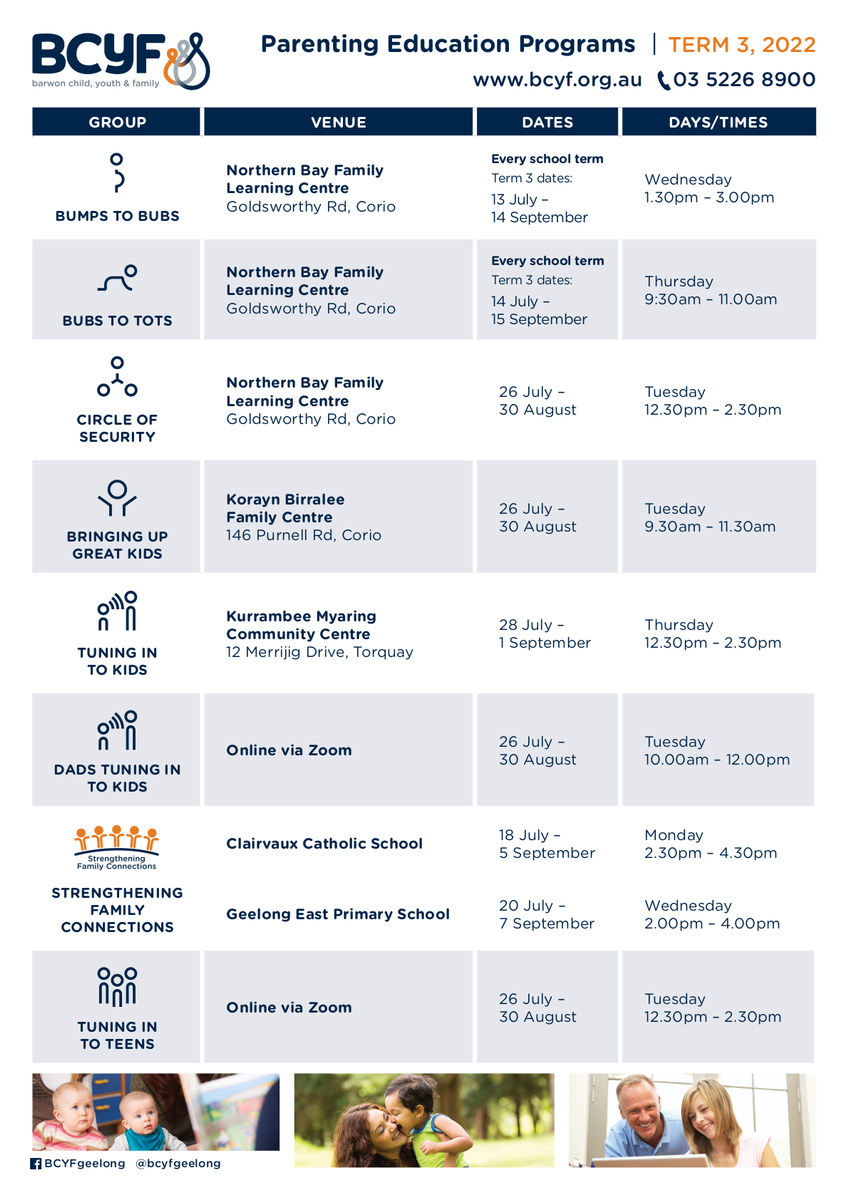WELLBEING

Surfs Up!
The end of term is only a matter of days away and the wellbeing team would like to wish all the students, staff and families a wonderful winter break. The term has certainly been an interesting one and we have learnt once again to be flexible and resilient to the everchanging world we are living in. As the holiday approaches we thought it would be great to encourage students to think about growth of mindset- and encourage students to adapt a “growth” mindset - where new challenges and setbacks can be viewed as an opportunity to learn. You may ask why would this be important as a young person – a “fixed” mindset allows us to avoid tasks which we might fail at it or be exposed as “lacking”. The difference is that we know that people with a growth mindset display greater self-esteem, are more resilient and enjoy better outcomes in life.
Isn’t that what we want for ourselves??
Fixed versus Growth Mindset
Growth mindset or fixed mindset—can the way we think about ourselves, and our abilities shape our lives? Absolutely. The way we think about our intellect and talents not only affects the way we feel, it can also affect what we achieve, whether we stick to new habits, or if we will go on to develop new skills. A growth mindset means that you believe your intelligence and talents can be developed over time. A fixed mindset means that you believe intelligence is fixed—so if you’re not good at something, you might believe you’ll never be good at it.
It is important to understand that we may fall in either fixed or growth mindset in certain situations. At different times of the day or when faced with various scenarios or challenges, we may show characteristics and actions of these two mindsets. We might be on a growth mindset today, then slip into a fixed mindset tomorrow. But now that we know the characteristics of these mindsets, we can be able to identify what mindset we have at any moment, figure out the cause, and recalibrate our perspective. This will help us focus on more positive actions and behaviours that will drive us to grow and succeed.
Developing a growth mindset doesn’t take overnight. It’s a process of learning and getting better that will be a key to shaping our lives. Mindsets also have a major influence on people’s ability to learn. Taking the step to learn something new is a reflection of a growth mindset – that you know you have the capacity to learn and build new skills, that you are ready to take on challenges, that you believe in the power of hard work, effort and perseverance.
How to change your mindset
1. Observe your mindset. You can’t begin to change a “fixed” mindset until you recognize it. Notice if you rush to conclusions about your abilities. Do you tell yourself that you’re no good at a particular task, so there’s no point attempting it? Do you believe that success in certain kinds of activities—whether it’s in music, sports, or creative fields—are reserved for people who are naturally gifted? Do you worry that if you try your hardest and fail at something, you’ll be exposed as “no good”?
2. Challenge your beliefs Now that you’ve begun to recognize the symptoms of a “fixed” mindset, you can begin to cultivate a “growth” mindset instead. If a task doesn’t come easily, remind yourself that it isn’t a reflection of your worth, but instead an opportunity to learn and improve. Good news: it's possible to notice the effects a change in mindset can have; research shows that considering a growth mindset for a few moments before starting a task can improve performance.
3. Build a “growth” muscle. Neuroscientists have found a circuit in the brain that governs our persistence in the face of difficulty. When there's a lack of immediate reward, it switches on, effectively telling us: "Don't give up! There's a reward (in the form of dopamine) on the way!" For some, this circuit hardly functions at all, so challenges arise, they can be more likely to give up. If you suspect you may have this tendency, you can begin to change your brain's wiring by slowly teaching it that hard work and resilience pay. Rather than seek out opportunities to repeatedly prove your abilities, look for challenges that may encourage learning and growth. Look for these opportunities to practice perseverance and learn from mistakes. Over time, a "growth" mindset can become an unconscious response.
Getting Sleep Patterns Back after holidays …
Why does the teenager need sleep?
Teenagers need sleep to:
- maintain a healthy body
- keep their immune system working well
- maintain good mental health
- boost their energy levels, learning and concentration
- store things in their long-term memory.
Lack of sleep can make it harder for your child to behave well, regulate emotions, pay attention and do well at school, and get along with others. Being tired all the time can even contribute to mental health issues like anxiety and depression.
About teenage sleep needs and patterns
Most teenagers need 8-10 hours of sleep each night. Some need as little as 7 hours or as much as 11 hours.
It’s very common for children in the early teen years to start wanting to go to bed later at night and get up later in the morning. This is because they start to secrete melatonin later at night than they did in earlier childhood, which affects their circadian rhythms. Also, as their brains mature during puberty, children can stay awake for longer.
Helping teenagers get the sleep they need
Good daytime habits can help teenagers get the sleep they need, especially as they get towards the later teen years. These habits can also help children avoid or sort out any sleep problems that come up.
Waking, sleeping and napping routines
Encourage your child to:
- keep wake-up times on school days and weekends to within 2 hours of each other – this helps keep your child’s body clock regular
- get out of bed when they wake up in the morning, rather than staying in bed
- spend the hour before lights out doing relaxing activities like reading a book, listening to music or having a warm shower or bath
- keep daytime naps to no more 20 minutes and make sure the nap is in the early afternoon.
Sleep environment
- Encourage your child to avoid the use of electronic devices in the hour before bed.
- Ask your child to put electronic devices in family rooms overnight.
- Check your child’s sleep space. A quiet, dimly lit space is important for good sleep.
Good health and nutrition
Make sure your child has a satisfying evening meal at a reasonable time. Feeling hungry or too full can make it harder to get to sleep.
- Encourage your child to get as much natural light as possible during the day, especially in the morning. This will help the body produce melatonin at the right times in the sleep cycle.
- Make sure your child has a healthy breakfast to kick-start their body clock. This helps the body feel ready for sleep at night.
- Encourage your child to avoid caffeine – in energy drinks, coffee, tea, chocolate and cola – especially in the late afternoon and evening.
- Encourage your child to do some physical activity during the day, but not too late at night.
Worries, fears and anxiety
- If your child has worries that keep them awake at night, try talking about the worries together during the day.
- Encourage your child to write down anxious thoughts each day well before bedtime. For each thought, your child could also add a possible solution.
- Suggest your child tries some mindfulness exercises to calm an anxious or active mind.
Signs of teenage sleep problems
A change in your child’s sleep behaviour – like going to bed later than you’d like – isn’t necessarily a sleep problem. Signs that your teenage child has sleep problems might include difficulties with:
- getting to sleep
- staying asleep
- getting out of bed in the morning. If your child has sleep problems, they might also feel tired during the day, or have trouble remembering things or concentrating.
Your child might be able to solve some sleep problems by getting into the good sleep habits described above. But if persistent problems with sleep are affecting your child’s wellbeing, schoolwork, relationships or mental health, it might be time to see a GP, school counsellor or psychologist.
Working with your child on sleep problems
If children have sleep problems, they need to be involved in solving their own sleep issues.
You can get your child’s input by asking about what makes it harder for them to get to sleep, or what keeps them awake. Then your child might be able to choose a daytime or evening habit that they think will help. For example, if they don’t feel tired, they might focus on doing more physical activity each afternoon.
It’s a good idea to praise your child when you notice they're trying to make changes to sleep patterns or trying out strategies you’ve discussed.
Lots of after-school activities like sport, music or part-time work can cut into your child’s sleep time or make it harder to unwind before bed. If this is the case with your child, you might need to talk about it. For example, your child might be able to reschedule some activities so they don’t interfere with sleep.
Raise a healthy mind
Raising Healthy Minds is a free app you can tailor to your child, family and interests. It answers your questions about child wellbeing and shares practical tips for your day-to-day family life.
Download now to start building your child’s wellbeing, encouraging positive behaviour and emotions, strengthening family relationships and looking after yourself.
https://raisingchildren.net.au/guides/raising-healthy-minds
As always stay kind and reach out if you need Michelle, Shelley, Mel and Rachel.
-----------------------------------------------------------------------------------------------------------------------------
BCYF - Barwon Child, Youth & Family
Surf Coast Shire Early Years in partnership with BCYF are hosting a 6 week Tuning in to Kids support program for parents of children aged 3 years – 12 years.
The program aims to:
• Help parents teach their children to understand and manage their emotions.
• Support parents in encouraging children to express emotions appropriately.
• Maximise children’s social, behavioural and learning outcomes.
Thursdays weekly 28 July – 1 September
12.30pm – 2.30pm
Kurrambee Myaring Community Centre, 12 Merrijig Drive, Torquay
Bookings are essential.
For more information and to book your place, please contact:
5226 8900
-------------------------------------------------------------------------------------------------------------------------------------
Drummond Street Services








